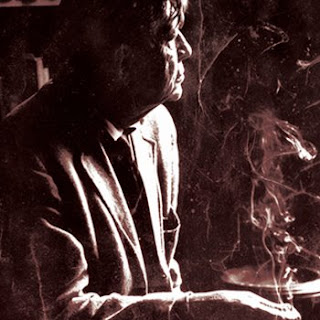
It's hard not to feel good for Aaron and Joe Crabtree, two little boys who have been signed by Blackburn Rovers (world's greatest football team etc. etc.) Just eight and seven years old, the brothers were spotted training with a junior team in the North West of England. Despite the fact that their father is a Manchester United supporter, the boys were persuaded to sign up for Rovers. They will wear the blue and white halves and hope against hope to stay the course long enough to play for the famous old club. I hope to read about Aaron playing a creative role in midfield, and his brother knocking in the goals as Blackburn take the Premier league by storm in about 2025.
However, I can't help noticing that, since signing, they will be required to join their teammates twice a week, and that they will play other academies on Sunday mornings. Now, I know that Christian Education does not need to be on Sunday mornings, and that worship can be held at other times, but I suspect that these little boys, and thousands like them, will grow up not knowing anything about the Gospel.
When I look back at the rich benefits that I enjoyed as a child as a result of attending church and Sunday School, and when I think about how valuable the experience has been for my own children, I can't help but feel sad for Aaron and Joe. You can learn a lot through sports. Playing on a team helps to develop some of the lifeskills that every child needs to be successful in life. But what about those issues that sport cannot address? Can soccer help when Grandma is taken deathly ill? Can Little League teach a relationship with God?
As the tide of secularism rises, we can no longer assume that the children of our community possess even the most basic knowledge of the Christian faith. The Bible stories and themes that permeate literature are completely unknown. Some time ago, during a pre-marriage counselling session, I made a reference to the story of David and Goliath. The bride-to-be had no idea what I was talking about. Last year I had the privilege of leading to Christ a young person who had never heard the word 'gospel.' And when I asked some cub scouts to name the disciples I got blank stares, until one urchin said "Moses?"
Now, I know that a relationship with God is not just about head-knowledge, but it must contain some knowledge, surely? "God" is an empty concept unless it is informed by the grand narrative of salvation. Either that, or "God" is understood through the lens of folk-religion, a mosaic of meaning that may entertain, but cannot save.
I doubt that the Christian Church will be successful in moving society back to such reverence for Sunday that the day (or at least the morning) will be reserved for worship and Christian Education. However, I do think that Christian parents should take the lead in speaking out against scheduling that assumes that worship is not a high priority. I think it also means that churches will need to be creative in offering quality educational opportunities at a variety of different times. Perhaps parents will also have to resume primary responsibility for teaching their children the fundamentals of the faith. Otherwise, if we are not careful, all we shall be raising will be a generation of extraordinarily healthy pagans.

Read about Aaron and Joe in the Manchester Evening News http://www.manchestereveningnews.co.uk/news/s/1112684__football_brothers_do_the_double












